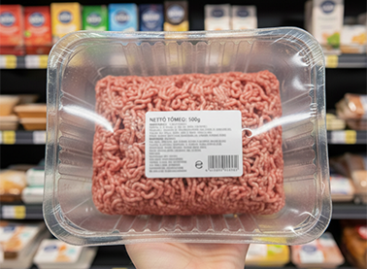Innovations in recycling – business workshop for those interested in the raw materials sector
For the second time, the Climate Innovation Community held a brainstorming workshop on the topic of recycling. The event on 15 December 2022 was organized in collaboration with EIT RawMaterials, the raw materials-focused knowledge and innovation community of the European Institute of Innovation and Technology, with the aim of supporting the birth of new solutions and technologies that support the supply and recycling of materials from secondary sources live. During the workshop, a design thinking trainer helped the participants to develop innovative ideas concerning the raw material and raw material industry, with which the participants can join either the Climate Innovation Community or the EIT RawMaterials business development programs in the future!

(Photo: Pixabay)
Recycling is the collective term for all activities aimed at:
● transform man-made, durable, non-natural materials, mainly waste materials, into raw materials,
● and produce secondary, recyclable materials that help reduce the use of natural materials.
The English word used for the activity, “recycling”, better expresses that it is an environmentally conscious circulation of materials, in the process of raw material – finished product – waste – raw material. Within this activity, we distinguish the concepts of value-increasing (upcycling) and value-reducing (downcycling) recycling, which express the quality of the recycled material compared to the original. The purpose of recycling is to conserve the Earth’s resources and reduce the amount of waste entering nature.
Circular economy as a sustainable economic model
In 2015, the European Commission set the goal of implementing the circular economy as the sustainable economic model of the European Union. The essence of this – in addition to preventing the generation of waste as much as possible – is that we can use the generated waste as a resource elsewhere. This is only possible if we reduce the amount of waste and utilize the remainder, thereby promoting the (re)usability of available products and materials as many times as possible. Currently, while in some European countries, such as Germany, more than 60% of the total waste is recycled and composted, in Hungary this proportion is only 35%. (Source: Eurostat)
The workshop
The business workshop, supported by the European Institute of Innovation and Technology, focusing on embracing innovations on the topic of recycling, was also open to all interested parties this year. The participants paid special attention to the following areas:
● solutions for recycling used products,
● recycling solutions for electronic waste, metals, batteries,
● cost-effective and smart waste collection, demolition and sorting.
Interested parties registered this year with a variety of backgrounds. Among them were experts in polymer technology and waste management, but environmental engineers, graduates of communication majors, and students studying social sciences also added color to the forming teams. During the three-hour workshop, they were able to learn about the main challenges affecting the field, they started brainstorming related solutions with great vigor, and business development programs focusing on the industry were also presented, since participation in the workshop can serve as an entrance to the EIT Jumpstarter, which will be held next year, in 2023, and other startup programs.
Related news
Focusing on fair competition and ethical advertising
🎧 Hallgasd a cikket: Lejátszás Szünet Folytatás Leállítás Nyelv: Auto…
Read more >Discover the solutions of the future on Startup Island! (Part 1)
🎧 Hallgasd a cikket: Lejátszás Szünet Folytatás Leállítás Nyelv: Auto…
Read more >Related news
40 secure jobs, sustainable solutions – new BURGER KING® in Csepel
🎧 Hallgasd a cikket: Lejátszás Szünet Folytatás Leállítás Nyelv: Auto…
Read more >









